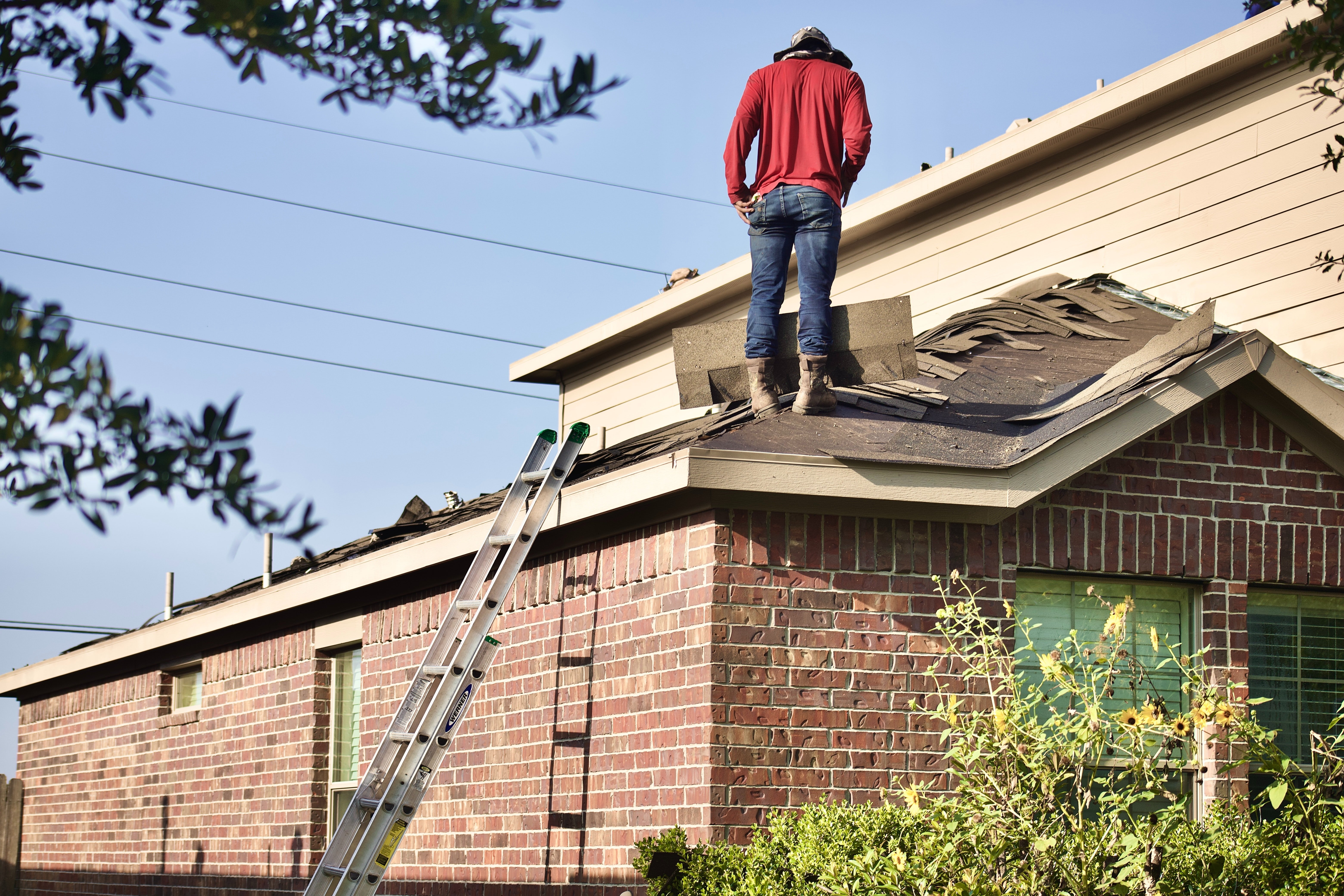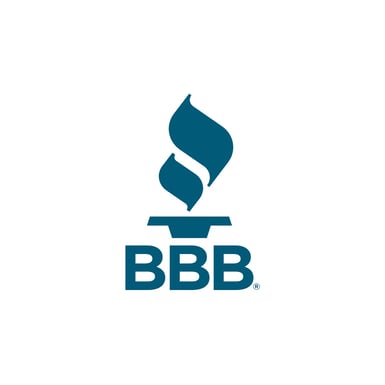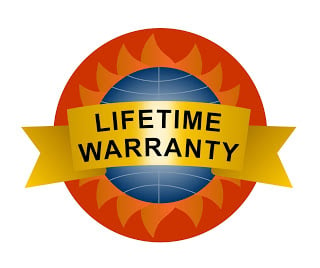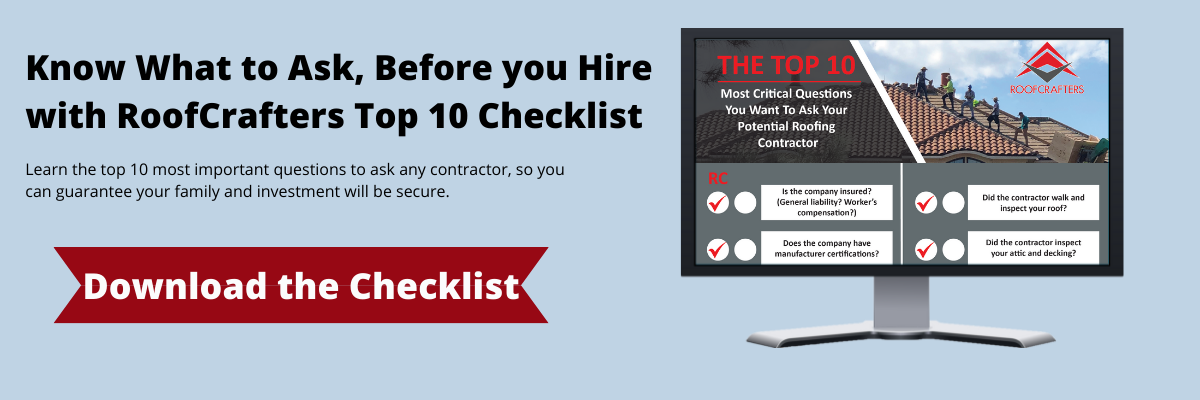Is the BBB a Trusted Source for Quality Roofing Contractors?
January , 2025 | 7 min. read

Finding the perfect roofing company for the project you’ve been planning for months can be stressful. What’s even more stressful is finding the perfect roofing company for an unplanned roofing project. Say you’ve sprung a leak, and the ceiling in your dining room is cracking and crumbling into Grandma Grace’s fine china set, and the downpour of standing water has curled your wooden floors. Now, it’s more important than ever to find the right contractor for the job, and time is not necessarily on your side.
So, where do you find the most qualified roofing contractor for the job? Do you look through Google reviews in your neighborhood? Or do you finally take your 2nd cousin Bobby up on his “I can roof it for half the price” offer? Luckily, there’s a 3rd option. You can find a qualified roofing company in your area on the Better Business Bureau website. RoofCrafters has been BBB accredited since April of 2011, and we’ve been grateful to have the opportunity to serve homeowners just like you who have found our company through the BBB website.
Okay, so, how do I know I can trust a roofing company I’ve found through the Better Business Bureau? I’m glad you asked! In this article, I’ll be discussing what exactly the BBB is, how you can vet a trusted roofing contractor through their website, what you should anticipate and expect from your project estimate, and lastly, how to avoid roofing scams. Let’s get started!
What Is the BBB?
 The Better Business Bureau or the BBB is a private organization that helps to provide the general public with in-depth information on charities and businesses. On the BBB website, you’ll be able to find out if a company is BBB accredited, its BBB rating, customer reviews, and even customer complaints. This nonprofit organization has developed its own rating scale, ranging from A+ to F. The rating a company receives is determined by criteria such as company performance, ethics, ratings, reviews, and more. The BBB is helpful to the companies it accredits, too. They offer guidance on proper business practices, and how to operate at a transparent level. To become BBB accredited, a company must be appropriately licensed, resolve all client complaints (if any), and be sure to adhere to the BBB advertising guidelines. On top of that, there’s an annual fee.
The Better Business Bureau or the BBB is a private organization that helps to provide the general public with in-depth information on charities and businesses. On the BBB website, you’ll be able to find out if a company is BBB accredited, its BBB rating, customer reviews, and even customer complaints. This nonprofit organization has developed its own rating scale, ranging from A+ to F. The rating a company receives is determined by criteria such as company performance, ethics, ratings, reviews, and more. The BBB is helpful to the companies it accredits, too. They offer guidance on proper business practices, and how to operate at a transparent level. To become BBB accredited, a company must be appropriately licensed, resolve all client complaints (if any), and be sure to adhere to the BBB advertising guidelines. On top of that, there’s an annual fee.
According to the Better Business Bureau website, by definition, “For more than 100 years, the Better Business Bureau has been helping people find businesses, brands, and charities they can trust. Millions of people turn to BBB each year to view BBB Business Profiles and Charity Reports, all available for free on BBB.org. BBB Accredited Businesses support the mission and vision of BBB, and their dues and contributions allow BBB to offer its information and services to consumers at no charge. The Better Business Bureau is not affiliated with any governmental agency.”
Can I Hire a Trusted Roofing Contractor From the BBB?
When it comes to vetting the most trusted roofing contractor in your area through the BBB, you’ll want to make sure you obtain a few things in your estimate before making your final decision. This includes:
-thumb.jpeg?width=426&name=Kyle%20Revisions%204%20(1)-thumb.jpeg)
- A detailed scope of work
- Material options
- Available Warranties
- Service after completion
- Overhead company costs
A Detailed Scope of Work
No verbal agreement or handshakes. You should be getting some form of a written estimate. Once you have your written estimates, you can review and compare them line item by line item. Oftentimes, this is where you'll find major differences. Some contractors won’t include woodwork or metal flashing in their estimates. This opens the door for change orders or added expenses once the job is started.
Typically, this happens when homeowners choose the cheapest bid and not realize the contractor missed line items in the scope of work that needed to be done. You don’t want to be in the middle of the job and have your contractor come to you and say they can’t finish the job without replacing the wood or metal flashing. Have you ever heard sometimes we hire the cheapest but end up paying the most?
Material Options: High-Quality Vs. Cheap-Quality
High-quality
- Durable in both summer and winter conditions
- Proven to withstand heavy rain storms
- Will handle the harsh conditions of saltwater climates
- Come with manufacturer-backed guarantees
- Trusted by top contractors
- Provide long-lasting protection
Cheap-quality
- It will save you money upfront
- Can’t withstand thermal movement
- Subject to give out in heavy wind and rain
- Rust and fail prematurely around the saltwater
- Don’t come with guarantees
- Used by contractors who haven’t developed a value system
- Fail prematurely
- This causes more expenses on the backed
- Provides a short period of security and protection
Warranty Options

There are two types of warranties in the roofing industry. The material warranty protects you from any defects in the materials, and the workmanship or craftsmanship warranty protects you from faulty workmanship. What does the workmanship warranty mean for you? It means, no leaks, or the contractor will make the corrections without charging you if it happens. The workmanship warranty is the most used in the roofing industry. Why? There are several reasons but to be fair, the short answer is that we’re human and we all make mistakes, but how a contractor handles their mistakes is what matters. That leads us to service after the job is complete.
Post-Project Service
For a contractor to provide a high level of service after the job has been completed, two things need to happen. The contractor has to have systems and processes in place to handle callbacks or issues from past jobs. This means they’ve had to build out a service or warranty division inside their company. They would also need to account for this activity, such as factoring the cost into each job. Contractors that pre-plan for warranty work have typically been around for a while.
Look, it's no secret that the roofing industry is a tough business. The Small Business Administration shows us that over 85% of roofing contractors go out of business within 3 years, and a staggering 90% are out of business before 5 years. Warranty work and service after the job cost contractors money. This leads us to contractors’ overhead costs.
Overhead Company Costs
Every roofing company has overhead or operating costs. This is the overall cost that it takes to successfully operate the company. Some of the overhead costs that can impact the cost of your roof include:
- General liability insurance
- Workers compensation insurance
- Vehicles (maintenance, fuel, and insurance)
- Office and shop
- Warranty work
- Employee payroll and taxes
- Employee training (continued education)
- State and local licenses and bonds
- Marketing and advertising
- Federal and State taxes
No matter how large or small a roof repair or replacement project may be, these are just some of the fixed costs that a roofing company has to factor into the cost of the project to operate their business successfully. When a company goes out of business, there is no warranty. The companies that charge more upfront are typically the ones that have been around for a while.
Look Out for Roofing Scams
Lastly, be diligent about roofing scams. If you’ve received an unsolicited offer, fallen victim to a natural disaster, or have had a salesman knocking on your door claiming to have been “in the area”, beware. Legitimate companies don’t cold-call, or in this case, cold-knock, because, to put it frankly, they don’t need to. So, remember to only do business with a trusted source.
Always be sure to research a few roofing companies and have them conduct their inspections before choosing the one you wish to have completed your project. You can compare and contrast their performances by using “The Top 10 Most Critical Questions You Want to Ask Your Potential Roofing Contractor”. This checklist includes several different prompts to ask your roofer to prepare you to hold the company accountable for its quality of work and services when it comes to your project.
In the meantime, remember to check these companies out on the BBB website, find out if they're accredited, and sort through their reviews and complaints. Also, pay attention to how long they’ve been in business. As previously mentioned, RoofCrafters is BBB accredited, as well as GAF certified, and we’re eager to serve homeowners in need. If you live in Georgia, Florida, or South Carolina, and are interested in a free roofing inspection, jump-start your next home improvement project now, and hit the “schedule inspection” button down below.
My name is Cassie, and I’m the Content Manager here at RoofCrafters. I was born and raised in Chicago, Illinois, and made my way out to Florida post-college graduation. I’m incredibly passionate about writing and creating valuable content that helps others with the collaboration of my marketing team. When I’m not working, I enjoy shopping (a little too much), spending time at the beach, and reading!



